The origin of Easter eggs can be traced back to ancient pagan traditions and they were later incorporated into Christian celebrations.
Eggs have long been associated with fertility, rebirth, and new life, but the precise origin of Easter eggs is not definitively known, and various theories and interpretations exist.
Today, Easter eggs continue to be a prominent symbol of the Easter season. They are widely used in various forms, from decorative crafts to chocolate treats, and remain an integral part of Easter traditions in many cultures around the world.
Table of Contents
What is the Origin of Easter Eggs?
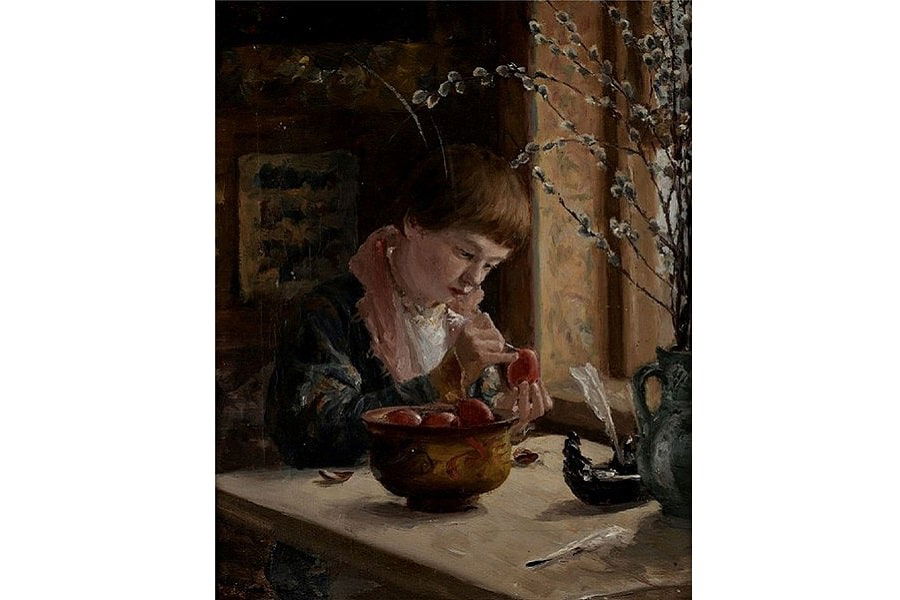
The origin of Easter eggs can be traced back to ancient times. The tradition has evolved over the centuries due to various cultural influences. Eggs have been an ancient symbol in Persian, Egyptian, and Greek society and were exchanged as part of their springtime festivals. Eventually, the Christians incorporated the eggs into their Easter Sunday celebration.
The word ‘Easter’ itself is derived from the Old English word ‘Ēastre’ or ‘Ēostre’. In turn, this is believed to be derived from the name of the pagan goddess Eostre, who is associated with spring and fertility.
What Do Easter Eggs Symbolize?
The Easter egg tradition varies across different cultures. Easter celebrations center around the rebirth of nature after the winter months, at the spring equinox. Therefore, an Easter egg symbolizes resurrection and life. This ‘birth’ element is symbolized by the transformation of eggs: from seemingly lifeless shells to living creatures. Finally, the Easter holiday is also just a time of celebration and joy.
Are Easter Eggs a Pagan Tradition?
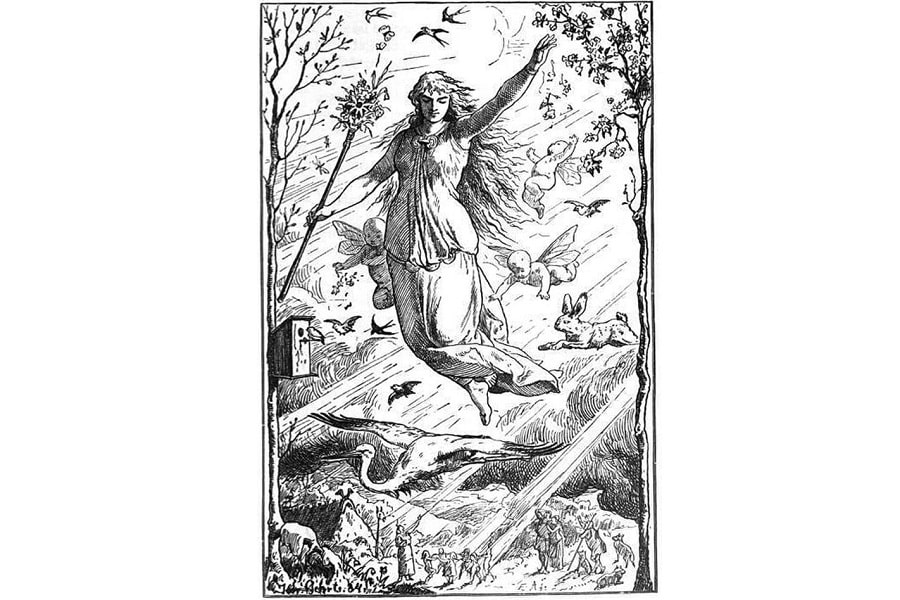
Eggs originally have been associated with various pagan festivals that relate to spring and fertility. Pagan celebrations were held to honor the arrival of spring and with that, the resurgence of life in nature. Eggs were often incorporated into these festivities as a representation of the fertility which is associated with the changing season. Therefore, Easter eggs originate in the pagan tradition.
During pagan spring festivals, eggs were offered as gifts or sacrifices to several different pagan gods. In medieval Europe, these offerings were made as prayers or offerings for a bountiful harvest, fertility, and protection.
Eggs were seen as fitting offerings to the gods and goddesses associated with springtime and agricultural abundance because of their rebirth connotations.
While the origins of Easter eggs are rooted in pagan traditions, they have been assimilated into Christian celebrations and gained a significant meaning in the Christian tradition over time. Today, Easter eggs hold both pagan and Christian associations.
What Do Easter Eggs Represent in Christianity?
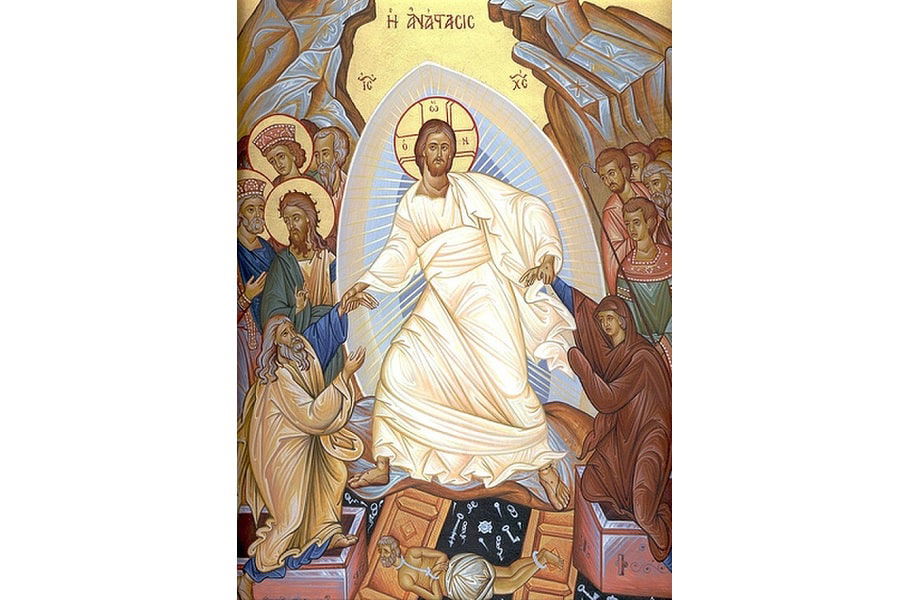
As Christianity spread, Christian missionaries incorporated the symbolism of eggs into the celebration of Easter. Christians believe that Jesus was resurrected from the dead, overcoming his death and sin. The egg became a metaphor for the resurrection of Jesus and his new life. An egg and its ability to transform from lifeless to life became synonymous with the rebirth brought about by Christ’s resurrection.
READ MORE: How Did Christianity Spread: Origins, Expansion, and Impact
Additionally, the egg’s hard shell represents the stone blocking Jesus’ tomb. The resurrection of Jesus involved breaking the seal of the tomb, and the missionaries equated this with the breaking of the eggshell.
Only after the stone (or shell) was removed, he was able to be reborn. The break of the egg and the empty shell serves as a reminder of the empty tomb, signifying the victory of life over death.
Christian Holiday and Early Easter Traditions
Before the incorporation of Easter eggs into the celebration, Easter was primarily a Christian holiday that just focussed on the resurrection of Jesus. The early Christian interpretation of Easter centered around religious services, like special church services, prayers, and rituals.
Christians would gather to commemorate Jesus’ sacrifice and hope of eternal life through his resurrection. The soberness of the occasion was often reflected in fasting, penance, and long religious processions.
Over time, elements from pre-existing pagan customs and practices were incorporated into Christian celebrations. This included the adoption of eggs as a symbol of new life and rebirth.
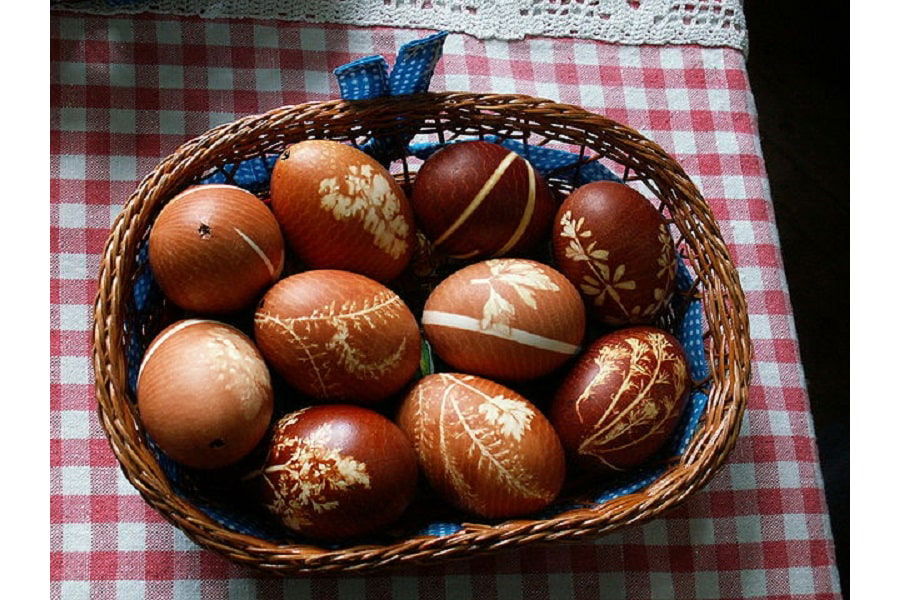
Easter Traditions
The Easter season is filled with a myriad of traditions. There is also an Easter bunny that supposedly hides the eggs decorated in many different ways.
Why Do We Hunt Eggs on Easter?
Historically, eggs were often in short supply or a forbidden food during Lent – the period of fasting and penance leading up to Easter. Hiding and hunting eggs symbolized the end of fasting and the emergence of newfound food. Additionally, in some cultures, it was believed that eggs hidden by mythical creatures – such as the Easter Bunny – would bring good luck or blessings.
While not directly tied to Christian beliefs, the practice of Easter egg hunts became popular among Christians. Children would search for hidden eggs, representing the search for Jesus’ empty tomb.
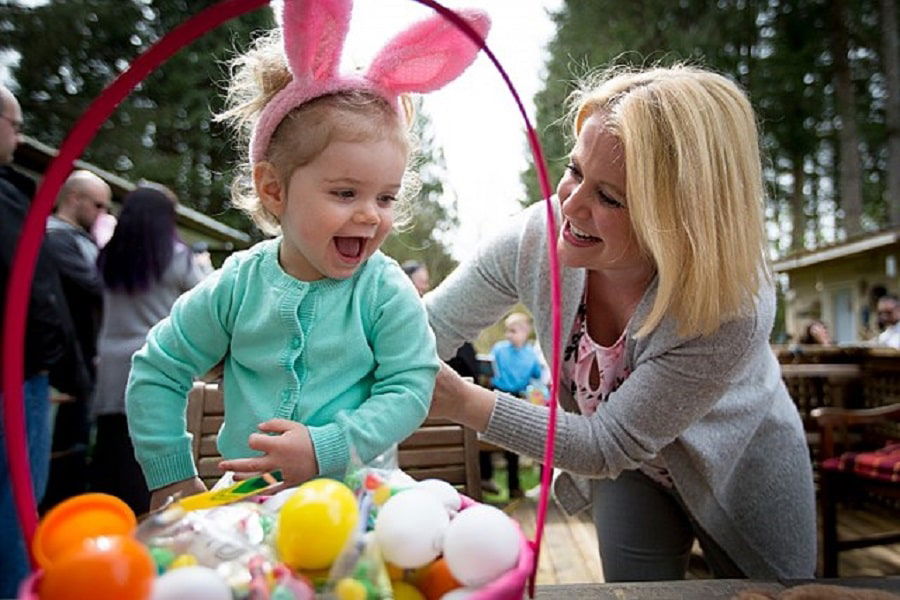
Why Do We Color Eggs on Easter?
Decorating Easter eggs is a tradition that allows for creative expression and personalization. It provides an opportunity for individuals, especially children, to engage in artistic activities and showcase their creativity. Some argue that decorating eggs also had a practical side to it since the coloring of the eggs served as a way to extend their shelf life.
So earlier, painted eggs had a different meaning than they have today. The appearance of eggs reflects the cultural context and religious beliefs of the individuals celebrating Easter. Orthodox Christians, for example, use hard-boiled eggs and color the egg red to denote Christ’s blood during the crucifixion. Other cultures have other forms of egg decoration.
Rolling Eggs
A fairly new tradition surrounding Easter eggs is egg rolling. It is a beloved Easter tradition celebrated in many parts of the world. However, it’s definitely not something that was practiced by the early Christians. Still, some considered egg rolling a symbol of removing the stone that blocked Jesus’ tomb as the shell would break while rolling down the hill.
The Easter egg roll encompasses the rolling of hard-boiled eggs down a slope or hillside, competing to see whose egg rolls the farthest without breaking. The origins of this activity can be traced back to different cultural and historical influences.
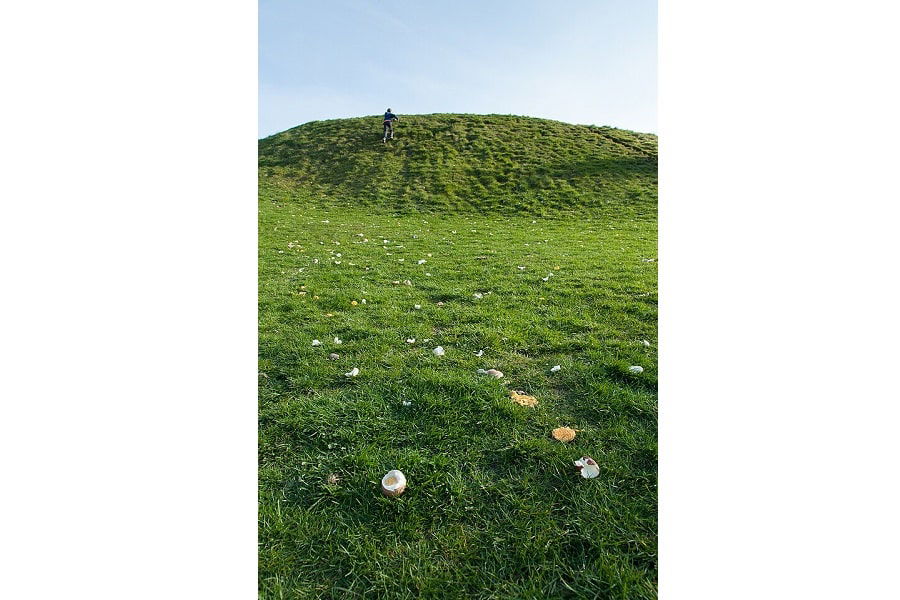
Modern Chocolate Easter Eggs
Another relatively modern tradition is the use of chocolate eggs during Easter, which began in the early 19th century. It originated in Europe, particularly in France and Germany, where chocolate-making techniques were advancing and becoming more accessible.
During this time, chocolatiers started experimenting with creating chocolate molds in various shapes, including eggs. As Easter was already associated with the symbol of eggs, it was a natural progression to incorporate chocolate into the Easter celebration.
The tradition of chocolate eggs gained popularity, especially among European communities. Afterward, it quickly spread to other parts of the world. Chocolate eggs became a favorite Easter treat, enjoyed by both children and adults. They were often given as gifts or used in Easter hunts.